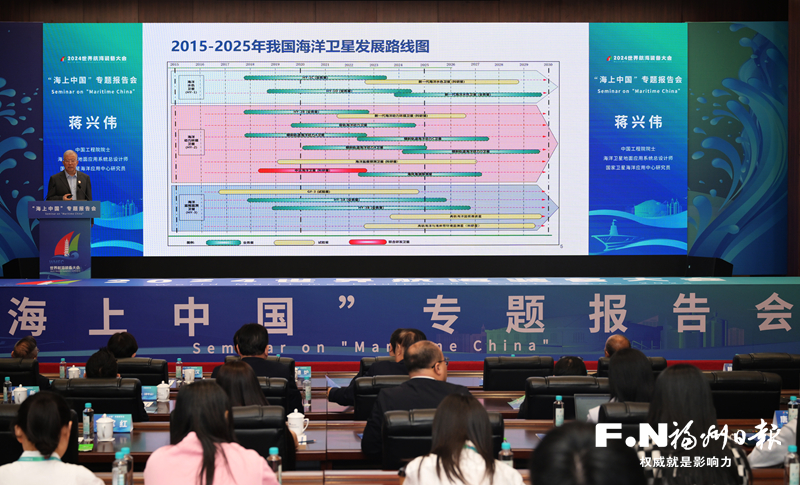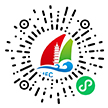The Seminar on “Maritime China” was Held
Advancing Maritime Ambitions and Accelerating the Construction of a Strong Maritime Country
The wind comes from the sea, and the tides speak of the future. The maritime factors, passed down for thousands of years, converge with the dreams of a maritime power shared by 1.4 billion people, continuing to surge along the banks of the Min River. On November 15, the Seminar on “Maritime China” was held in Fuzhou.

On-site Picture of Seminar on “Maritime China” Reporter: Chen Nuan / Photography
The seminar was organized by the China Institute for Marine Affairs of the Ministry of Natural Resources and the Fuzhou Municipal People’s Government, with the theme of “Advancing Maritime Ambitions and Accelerating the Construction of a Strong Maritime Country”. Marine experts, academicians, and industry elites gathered to share their insights on the application and breakthroughs in marine technology, as well as the inheritance and development of maritime civilization.
“Building a smart ocean is a major strategic issue, crucial to national interests and long-term development,” said Pan Delu, Academician of the Chinese Academy of Engineering. He proposed that the smart ocean is a technological revolution in the integration of information and physics, representing the nervous system for maritime strategy and the long-term strategic framework for China’s construction of maritime power. Through years of practice, he has deeply realized that big data is the soul of the smart ocean, artificial intelligence is the core, and the smart ocean has vast potential in discovering quality marine economic resources, expanding the marine insurance industry, and exploring marine combustible ice.
When it comes to marine big data, an indispensable data source is marine satellite observation. Jiang Xingwei, Academician of the Chinese Academy of Engineering and Chief Designer of the Marine Satellite Ground Application System, stated, “Marine satellites, with their high, fast, wide, and comprehensive advantages, have become irreplaceable high-tech tools for effectively capturing ocean environmental information. They are currently and will continue to be a major field for cutting-edge marine technologies.”
In 2002, China launched its first marine satellite. Entering the new era, the development of China’s marine satellite industry has entered a fast track. At the meeting, Jiang Xingwei shared some good news: on the 14th of this month, China’s first marine salinity detection satellite was successfully launched, further enhancing China’s independent ability to detect marine dynamic environmental elements.
With the massive amounts of data, how can we better create shared services to empower various industries? The seminar saw broad participation from government, enterprises, commerce, academia, research, and finance, contributing to the development of new quality productive forces in the marine sector. In academic fields, there is an urgent need to cultivate more high-end talents capable of addressing future challenges in marine sciences.
Dai Minhan, Academician of the Chinese Academy of Sciences and Chair Professor at Xiamen University pointed out that marine disciplines cover two major areas: understanding the ocean and strategizing for ocean development, with distinctive features of interdisciplinary and large-scale scientific characteristics. Since the 21st century, the development of marine disciplines has entered a stage where large-scale scientific projects drive both understanding and application. Dai summarized the development patterns of marine disciplines: mission-driven, closely tied to national rise and marine technological advancement; highly integrated, with interdisciplinary fusion driving scientific revolution; and data-intensive, heavily reliant on technology and equipment.
“The direction and demands of the national marine development strategy are deeply rooted in the rich traditional marine culture,” said Zheng Changlai, Director of the International Exchange and Cooperation Committee on Marine Culture of the Pacific Society of China. He emphasized that Chinese maritime culture, with its rich and splendid heritage over thousands of years, embodies the unique oceanic philosophy and spirit of the Chinese nation. Promoting the fine traditions of Chinese maritime culture and enhancing the nation’s maritime soft power has new significance in serving the construction of modern maritime civilization.
(Reporters: Mo Siyu / Text, Chen Nuan / Photography)







